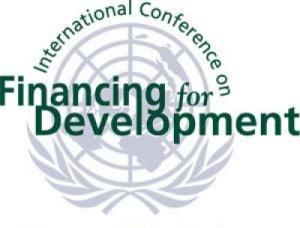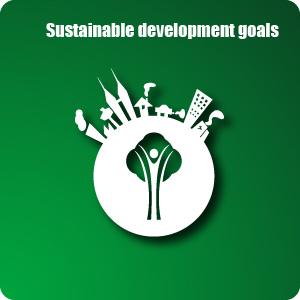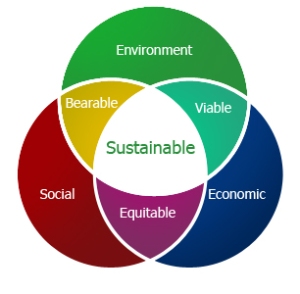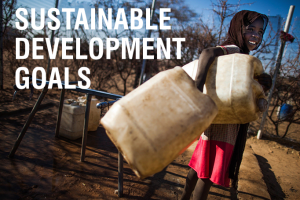Guest Bloggers: Gail Hurley, Policy Specialist on Development Finance, UNDP and Max Riva, Policy Specialist on Innovative Finance, UNDP.
 2015 will be a major year for international development. In September, the international community will agree on a new set of Sustainable Development Goals – or SDGs – which will replace the Millennium Development Goals when they expire at the end of the year. The new vision promises to be much more ambitious than the ‘old’ one; governments will pledge to eradicate extreme poverty by 2030, take action to curb climate change and protect key ecosystems, as well as build peaceful societies and eliminate gender inequality. In July, governments will meet in Addis Ababa, Ethiopia to discuss how to implement and finance the SDGs.
2015 will be a major year for international development. In September, the international community will agree on a new set of Sustainable Development Goals – or SDGs – which will replace the Millennium Development Goals when they expire at the end of the year. The new vision promises to be much more ambitious than the ‘old’ one; governments will pledge to eradicate extreme poverty by 2030, take action to curb climate change and protect key ecosystems, as well as build peaceful societies and eliminate gender inequality. In July, governments will meet in Addis Ababa, Ethiopia to discuss how to implement and finance the SDGs.
Much is at stake. More finance will undoubtedly be needed, in particular for the poorest and most vulnerable countries. So it will be important for donor countries to recommit to international aid targets (such as the UN target to allocate 0.7% of Gross National Income (GNI) to Official Development Assistance (ODA) – currently just 5 donors have met this target. Improvements in aid quality are also needed, and aid needs to be allocated where it is needed most (currently just 10 countries receive over a third of total development aid).
But it’s about much more than simple financial commitments. Government policies in areas such as fossil fuel subsidies, taxation, trade and social and environmental regulations for private sector companies also play a key role in supporting – or undermining – sustainable development. Progress in these areas is often trickier but will be essential.
 What role for innovative financing for development in supporting the post-2015 Sustainable Development Goals? Can we expect it to be a major contributor? What sorts of promises – if any – should governments make in Addis Ababa to further develop and promote innovative financing for development?
What role for innovative financing for development in supporting the post-2015 Sustainable Development Goals? Can we expect it to be a major contributor? What sorts of promises – if any – should governments make in Addis Ababa to further develop and promote innovative financing for development?
Over the last decade, there has been a proliferation in initiatives describing themselves as ‘innovative financing for development mechanisms’. These include for example, the airline ticket tax, the International Finance Facility for Immunisation, debt swaps, crowdfunding, social impact bonds, diaspora bonds (and even ‘Rhino’ bonds) to name but a few. Most report impressive results and have made valuable contributions to development. But it is also clear that many initiatives remain small in scale and have failed to substantially increase the resource envelope for development. Potentially much larger schemes such as the financial transactions tax and carbon taxes remain politically extremely difficult.
The potential offered by innovative financing for development mechanisms has not yet been fully exploited. The Post-2015 process offers, however, an important opportunity to advance this agenda.
 For instance, governments could commit to joining initiatives already in place, and thereby help to scale them up. Governments could commit to raising a certain amount of money each year through innovative financing mechanisms, and pledge that this will be additional to development aid.
For instance, governments could commit to joining initiatives already in place, and thereby help to scale them up. Governments could commit to raising a certain amount of money each year through innovative financing mechanisms, and pledge that this will be additional to development aid.
The private sector also has an important role in both developing innovative financing for development schemes, as well as finding innovative ways to deliver financial products and services to communities that need them. For instance social transfers and pensions can be paid via mobile phones even where there are no financial institutions in place, and the private sector can expand financial products such as microsavings and insurance in rural and remote areas.
The developing world is also not a ‘passive recipient’ of innovative financing for development. Individually and collectively, developing countries can devise and implement their own innovative financing for development schemes, most suited to their particular needs. Indeed, several developing nations are already important players and contributors to innovative financing for development (Chile for instance was a key driver behind the airline ticket tax; and in 2014 the Republic of Congo- became the first country to announce a 10 cents levy on each barrel of oil sold to fight chronic malnutrition).
UNDP is an important partner in efforts to sustainably and responsibly expand the range of financing options. These include green lending facilities and challenge funds for small and micro enterprises, the promotion of environmental and social certification for premium products and supporting the development of innovative financial products, such as social impact bonds.
 For example, in collaboration with the Zoological Society of London, Social Finance and United for Wildlife, UNDP is designing a social impact bond which aims to secure much needed long-term finance to help protect rhinos from extinction. With the Central American Bank for Economic Integration, UNDP is helping to catalyze biodiversity-friendly investments in Central America through blending development aid with private finance. Such initiatives have supported the development of small enterprises which focus on advanced soil, forest and water conservation, such as planting and waste recycling.
For example, in collaboration with the Zoological Society of London, Social Finance and United for Wildlife, UNDP is designing a social impact bond which aims to secure much needed long-term finance to help protect rhinos from extinction. With the Central American Bank for Economic Integration, UNDP is helping to catalyze biodiversity-friendly investments in Central America through blending development aid with private finance. Such initiatives have supported the development of small enterprises which focus on advanced soil, forest and water conservation, such as planting and waste recycling.
There are more opportunities than ever before to raise and deliver resources in innovative ways, facilitated in large part through advances in technology. Partners can also collaborate and share experiences much more readily. It’s also clear that sustainable development needs are great. Together, let’s take many more excellent initiatives to-scale.
Written by: Gail Hurley, Policy Specialist on Development Finance, UNDP and Max Riva, Policy Specialist on Innovative Finance, UNDP.
Follow Gail on Twitter @gailmlhurley
Follow Max on Twitter @massimilianoriv
